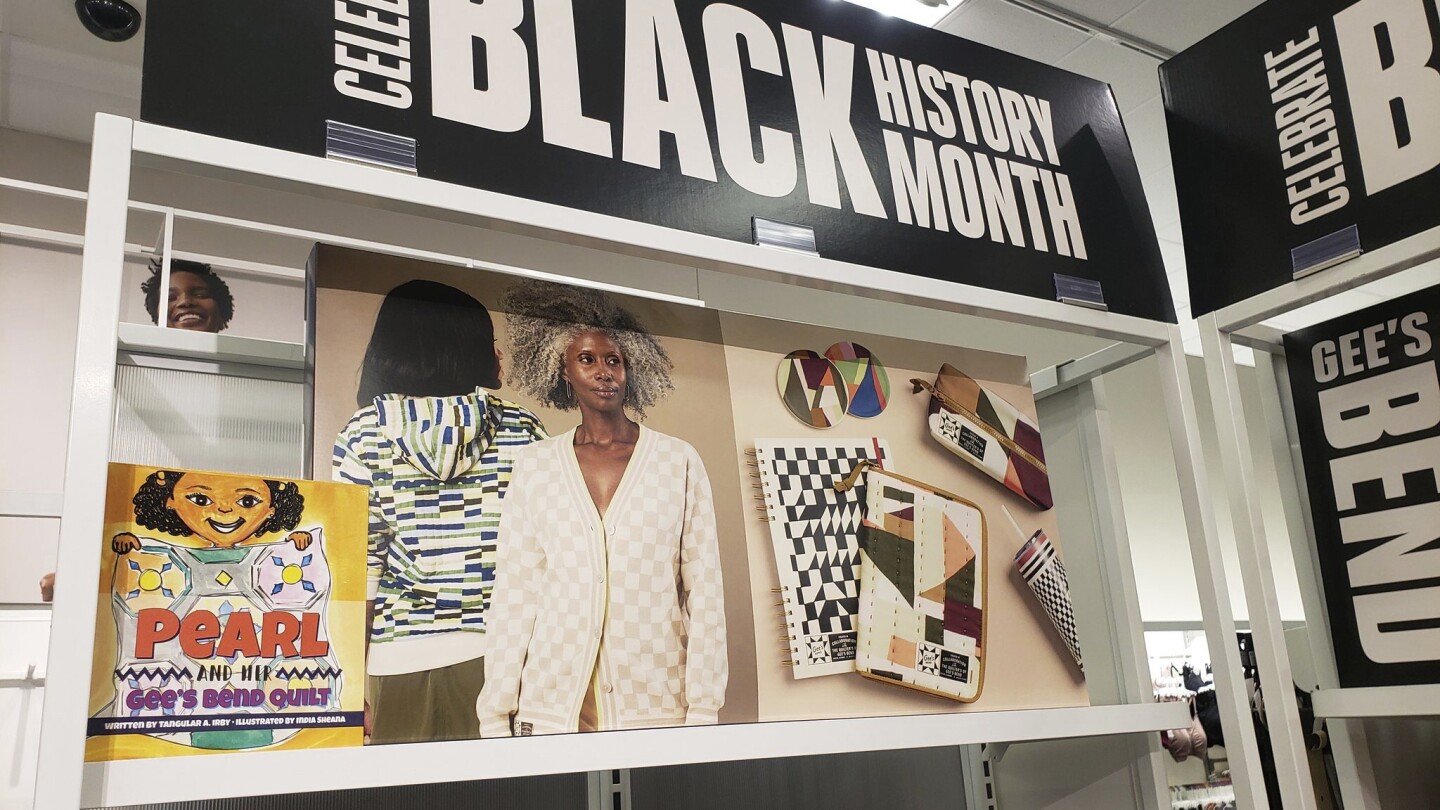Over the past two decades, Gee’s Bend quilts have captured the public’s imagination with their kaleidoscopic colors and their daring geometric patterns. The groundbreaking art practice was cultivated by direct descendants of slaves in rural Alabama who have faced oppression, geographic isolation and intense material constraints.
As of this year, their improvisational art has also come to embody a very modern question: What happens when distinctive cultural tradition collides with corporate America?
Enter Target. The multinational retailer launched a limited-edition collection based on the quilters’ designs for Black History Month this year. Consumer appetites proved to be high as many stores around the country sold out of the checkered sweaters, water bottles and faux-quilted blankets.
Unlike the pay structure of the Freedom Quilting Bee of the 1960s — an artist-run collective that disbursed payment equitably to Gee’s Bend quilters, who were salaried and could set up Social Security benefits — one-off partnerships with companies like Target benefit only a small number of people, in this case five women from two families.



From Target (pronounced tar-jhay) - the company who thought that Canadian shoppers were mirror images of their American counterparts but were wrong, because in less than 2 years they were wiped off the map in Canada.
Target’s difficulty in Canada had more to do with logistics and existing trucking routes than anything else. They assumed they could push Canadian governments to allow for the creation of new carrier contracts, but they were wrong, and as a result their supply chain was immediately hamstrung.
The stores in Canada had a harder time getting goods, which caused the company to raise prices accordingly. Images of the stores show many empty shelves, which doesn’t encourage shopping. Canadian consumers weren’t without other options locally, and those shoppers on the US border found it easier and more advantaged to cross over and shop at Target stores in the US should they have a need.
Still their stupidity at assuming anything vs sitting down with the gov’t and hammering out a deal.
It was hubris, nothing more.
Given their stance on pride I think we dodged a bullet - and several larger non-perishable retailers have collapsed recently… now if only we could get more grocers up here.